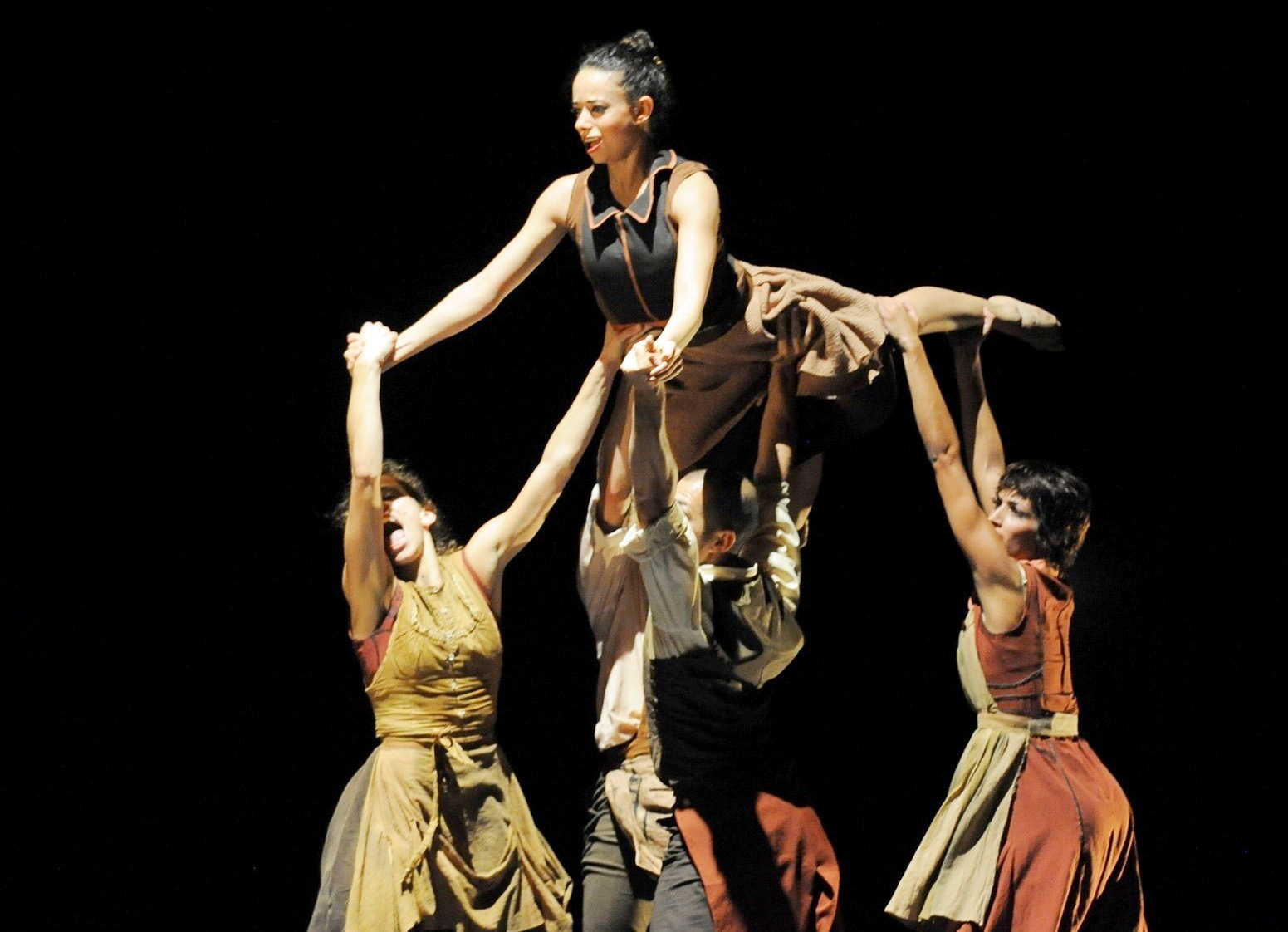Barak Marshall never wanted to become a dancer. He avoided the same career path as his mother, Margalit Oved, a well-known choreographer and dance teacher who taught at UCLA. Now critically acclaimed for his choreography, the L.A. native presents his work, “Monger,”at Royce Hall’s stage this Friday and Saturday.
Although Marshall spent his childhood watching his mother teach dance in Glorya Kaufman Hall, he never took a lesson.
Still, Marshall followed his mother to Israel when she was appointed artistic director of her old dance company in Tel Aviv. There, the sudden death of a very close aunt hurtled Marshall into the arts world.
“During my mourning period, I would lock myself in the studio and try to remember everything she said to me, everything she’d sing to me, the way she moved, just to try and imprint in my head as much of the memory I could. I didn’t know it at the time, but I was dancing,” Marshall said.
A friend who had been secretly watching from the doorway approached Marshall after the week he dealt with his grief, surprised by the way he expressed himself with his body.
“She said, “˜I want to show you movement.’ I told her it was beautiful, and she said, “˜It’s your movement,'” Marshall said.
On Friday, the Barak Marshall Dance Theatre will perform his 2008 piece, “Monger.” The dance tells the story of 10 servants trapped in the basement of a cruel mistress’ house, and the lengths they reach to break free from her authority.
Laced with pop culture references, the choreography finds roots in many cultures, including African, Americana, Yiddish and Middle Eastern styles. Marshall invited Cheng-Chieh Yu, a professor in the department of world arts and cultures, to teach his dancers the basics of traditional Chinese fan dancing for “Monger.” After learning the fundamentals, Marshall broke the rules. His dancers use the fans differently, even placing them in their mouths.
“The Chinese opera movements are very traditional and stylized. It blew my mind how Barak transformed the dance vocabulary into his own,” Yu said.
Marshall said he choreographs with theater in mind, creating compositions with highly emotive, gestural movements. In rehearsal, he commented both on the dancers’ technique and their facial expression, praising one dancer for the intensity of his glare. The piece even includes dialogue in places where Marshall deems it necessary to convey the narrative arc.
“Many choreographers use the abstract to justify not having a clear idea of what they want to say. It’s a snobbery … I hate when people walk out of my dances bewildered. Dance for me has to be like a good movie or a good book,” Marshall said.
Phil Rosenthal, director of marketing and communications for UCLA Live, said that Marshall has a keen sensibility for music. The movements in “Monger” are vigorous and physically demanding, fueled by the energy of Gypsy, classical and Balkan songs.
“We’re about a balance between the old and the new, local and international. He’s carved out a serious reputation for himself globally, but he’s also working here. So “˜Monger’ is the perfect show for us,” Rosenthal said.
Marshall grew up on the UCLA campus and spent much time on the Royce Hall stage.
He said he’s honored to share the space.
“My mother taught at UCLA for 22 years, so this is really a homecoming for me of sorts. I really did sleep on the floor in the third row of Royce,” Marshall said.
